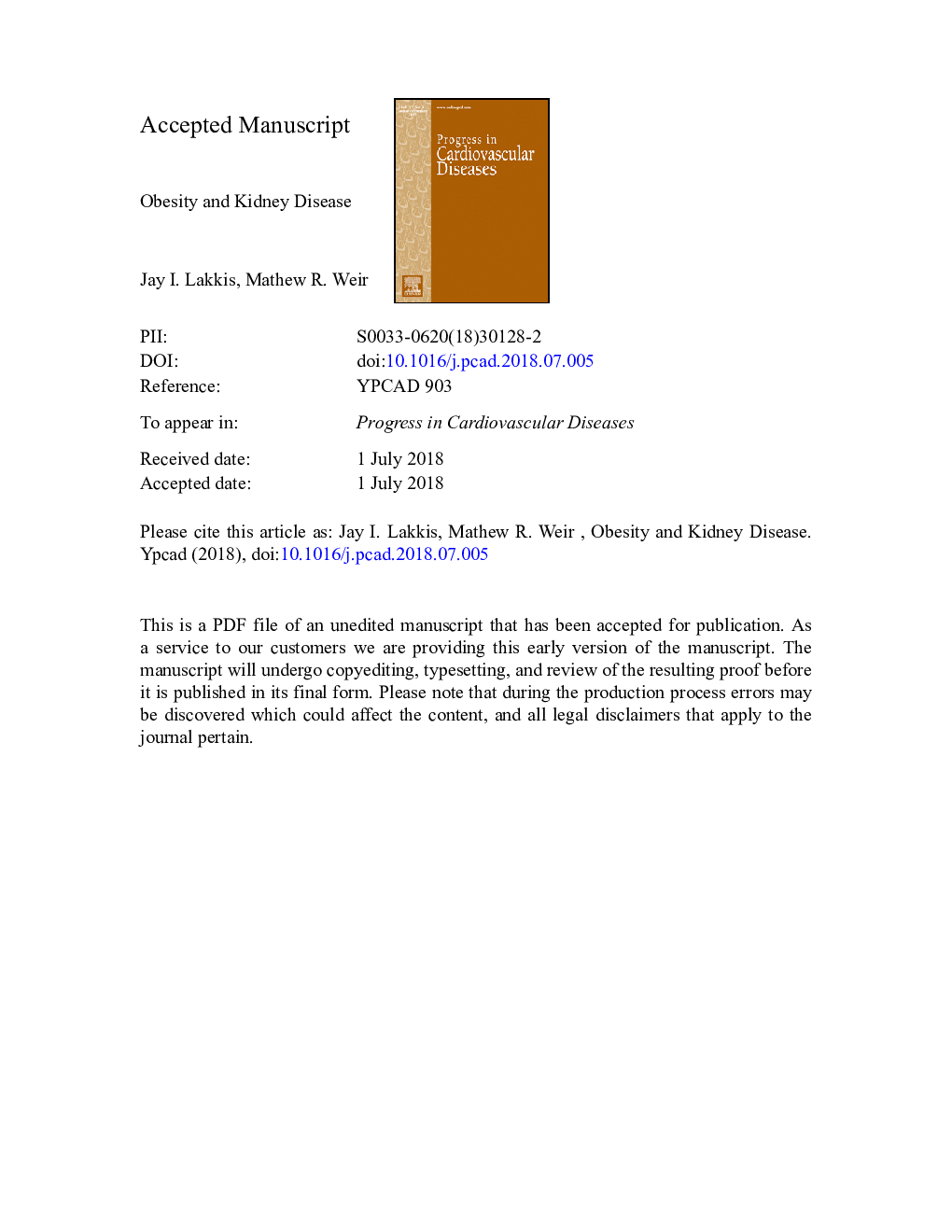| Article ID | Journal | Published Year | Pages | File Type |
|---|---|---|---|---|
| 8963251 | Progress in Cardiovascular Diseases | 2018 | 51 Pages |
Abstract
Obesity is a systemic disease of the white adipose tissue, which has evolved into a global epidemic. It is associated with a plethora of adipocyte hormonal (adipokine) imbalances, dysregulation of the energy-balance system, imbalances in metabolic homeostasis, a pro-inflammatory state and multiple target organ damages. Clinically, the obesity phenotype is not homogenous and is more likely to represent a spectrum with varying degrees of metabolic un-health; metabolically-unhealthy obesity is often a part of the metabolic syndrome. The links between obesity and chronic kidney disease are numerous, bidirectional, multi-layered and complex; this complexity may be explained by shared pathophysiological pathways (e.g. chronic inflammation, increased oxidative stress, and hyper-insulinemia), shared clusters of risk factors as well as associated diseases (e.g. insulin resistance, hypertension and dyslipidemia). We will review these links and their clinical manifestations, and offer a summary of available non-pharmacological as well as pharmacological therapeutic strategies.
Keywords
T2DMBATNHANESORGACRARBECFaHIRAASSNSKDIGOCHDDGFEGFRFSGSMHOHTNWHRHFrEFUAERMUOESKDTGF-βNCEP-ATP IIIERPFACEIAKISDBHDLBSADNAhigh-density lipoproteinadiponectinacute kidney injuryangiotensin-converting-enzyme inhibitorobstructive sleep apneasleep-disordered breathingdeoxyribonucleic acidUnited States of AmericaUSAinterleukintrhWhite adipose tissuebrown adipose tissueOsaNational Health and Nutrition Examination SurveyNational Cholesterol Education Program Adult Treatment Panel IIIcoronary heart diseasecardiovascular diseasechronic kidney diseaseEnd-stage kidney diseasekidney disease: improving global outcomesdelayed graft functiontransforming growth factor-βtriglyceridetumor necrosis factor-αeffective renal plasma flowDASHtreatment-resistant hypertensionWaist circumferenceDiabetes mellitusDiabetes mellitus type 2CVDDietary Approaches to Stop Hypertensionmicro ribonucleic acidWorld Health Organizationbody surface areaMetabolic syndromerenin-angiotensin-aldosterone-systemsympathetic nervous systemapnea-hypopnea indexbody mass indexBMIconfidence intervalTNF-αBlood pressurePhysical activityLeptinextracellular fluidMETSObesityangiotensin II receptor blockerestimated glomerular filtration rateMicroRNAheart failure with reduced ejection fractionCKDAlbumin-to-creatinine ratiohazard ratioWaist to hip ratioodds ratioSystemic arterial hypertensionMetabolically healthy obesitymetabolically unhealthy obesityWATFiltration fractionWHOfocal and segmental glomerulosclerosisObesity-related glomerulopathy
Related Topics
Health Sciences
Medicine and Dentistry
Cardiology and Cardiovascular Medicine
Authors
Jay I. Lakkis, Mathew R. Weir,
